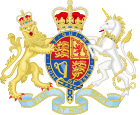Computer Misuse Act 1990
 | |
| Long title | An Act to make provision for securing computer material against unauthorised access or modification; and for connected purposes. |
|---|---|
| Citation | 1990 (c. 18) |
| Introduced by | Michael Colvin |
| Territorial extent | England and Wales; Scotland; Northern Ireland |
| Dates | |
| Royal assent | 29 June 1990 |
| Commencement | 29 August 1990 |
| Other legislation | |
| Amended by | Criminal Justice and Public Order Act 1994, Criminal Justice (Terrorism and Conspiracy) Act 1998, Police and Justice Act 2006 and Serious Crime Act 2015 |
Status: Amended | |
| Text of statute as originally enacted | |
| Revised text of statute as amended | |
The Computer Misuse Act 1990 (c. 18) is an act of the Parliament of the United Kingdom. It was made after Robert Schifreen and Stephen Gold hacked into British Telecom's Prestel viewdata service in 1984-1985. They were even able to see personal messages of Prince Philip, but they could not be prosecuted as there were no laws against hacking. This was a problem, as people could hack into systems and see personal data without breaking the law, which was why the Computer Misuse Act was made.[1][2]
Some people did not like the act, saying it was made too quickly and not given much thought. The act did not make a difference between people who hacked for fun from people who hacked to steal data or money. Other countries have made their acts for hacking using parts of the Computer Misuse Act, such as Canada and the Republic of Ireland.[3] It has been amended many times since 1990 to keep it up to date.
Related pages
[change | change source]References
[change | change source]- ↑ Lee, Mark (Autumn 2014). "Lecture 2: Legal Perspectives" (PDF). School of Computer Science. Professional Computing. University of Birmingham. p. 13. Archived from the original (PDF) on 15 September 2017. Retrieved 19 May 2017.
- ↑ Murray, Andrew (2016). Information Technology Law: The Law and Society (3rd ed.). Oxford University Press. p. 358. ISBN 978-0-19-873246-4. Retrieved 19 May 2017.
- ↑ IISS Global Perspectives – Power in Cyberspace. Q&A with Nigel Inkster, Director, Transnational Threats and Political Risk, IISS. 18 January 2011.
